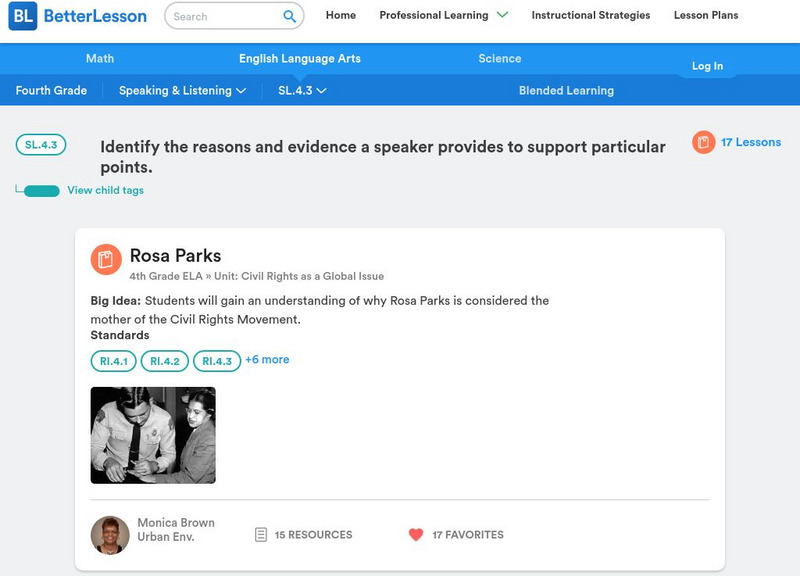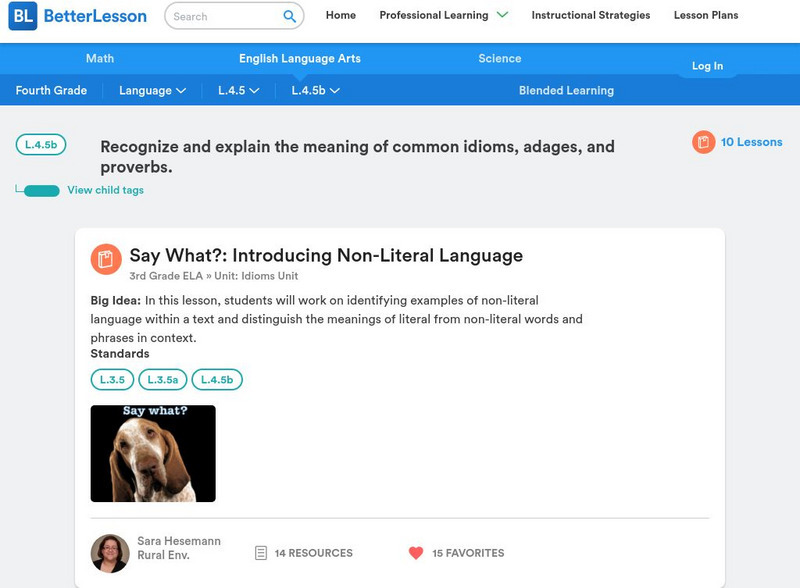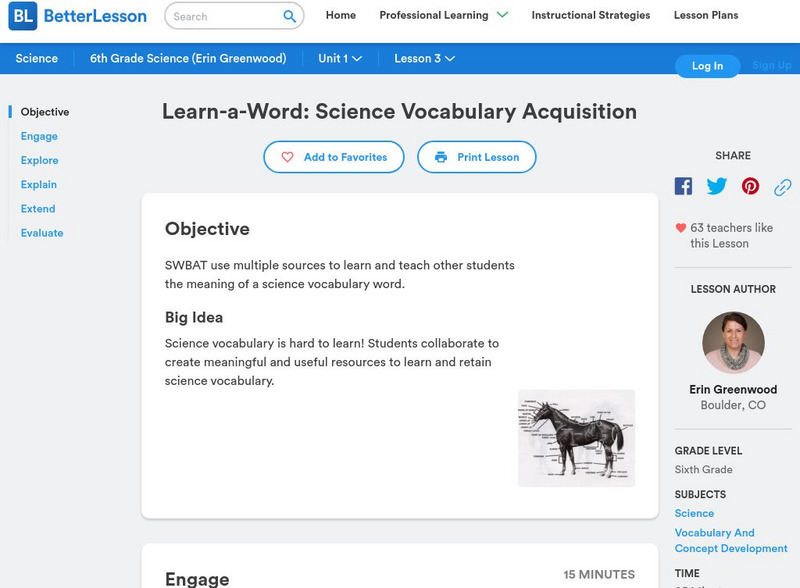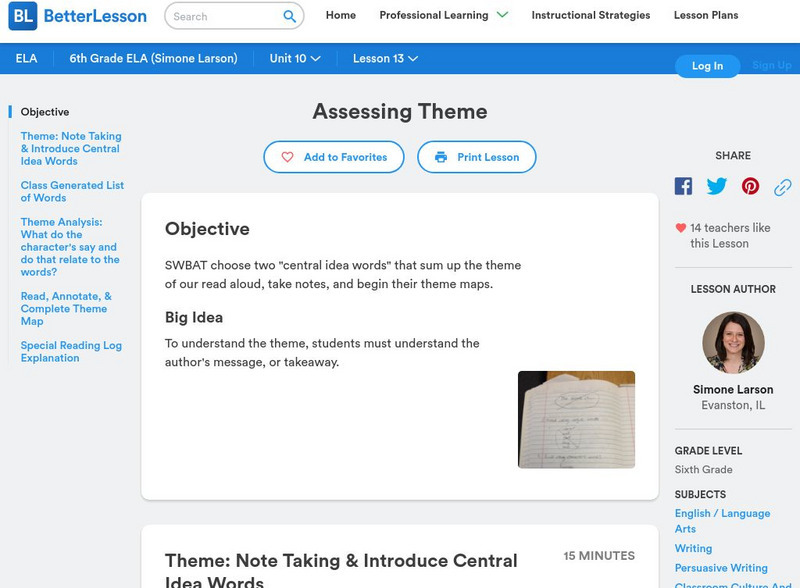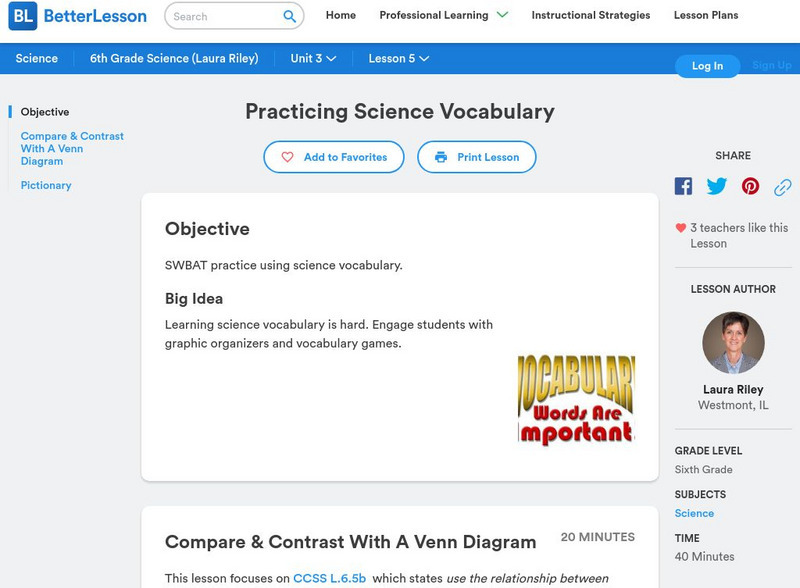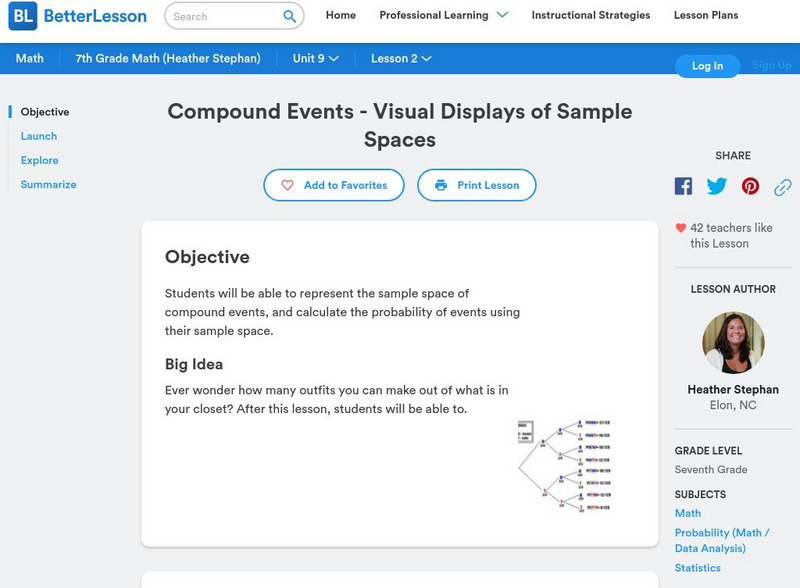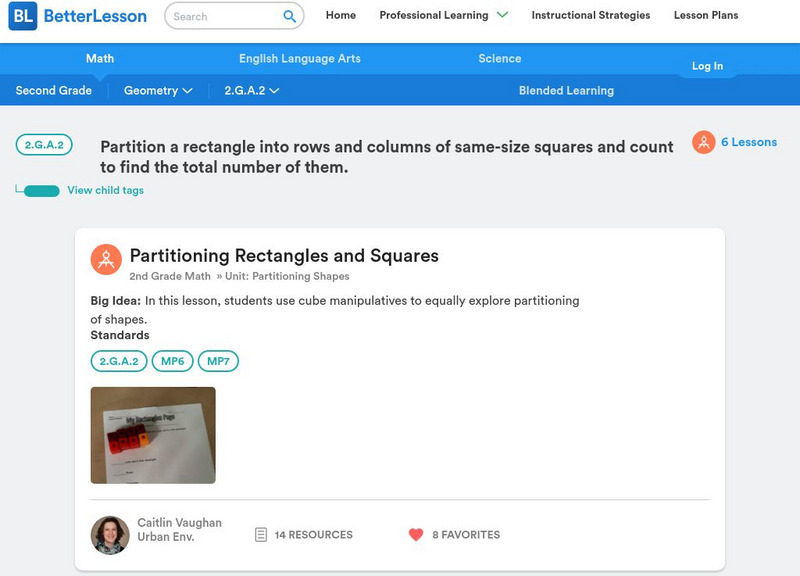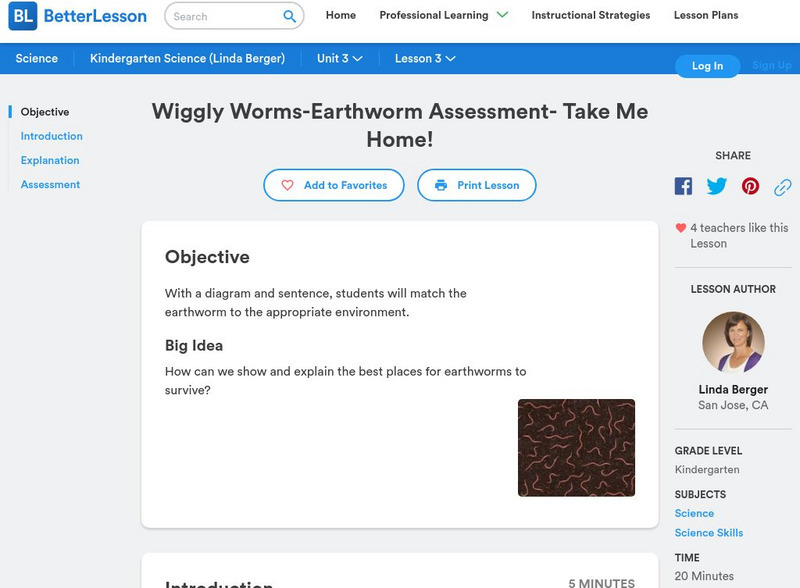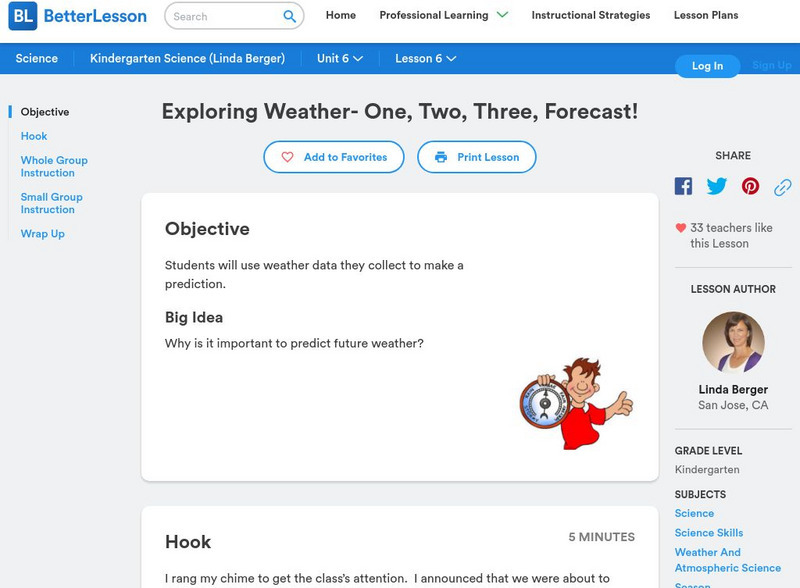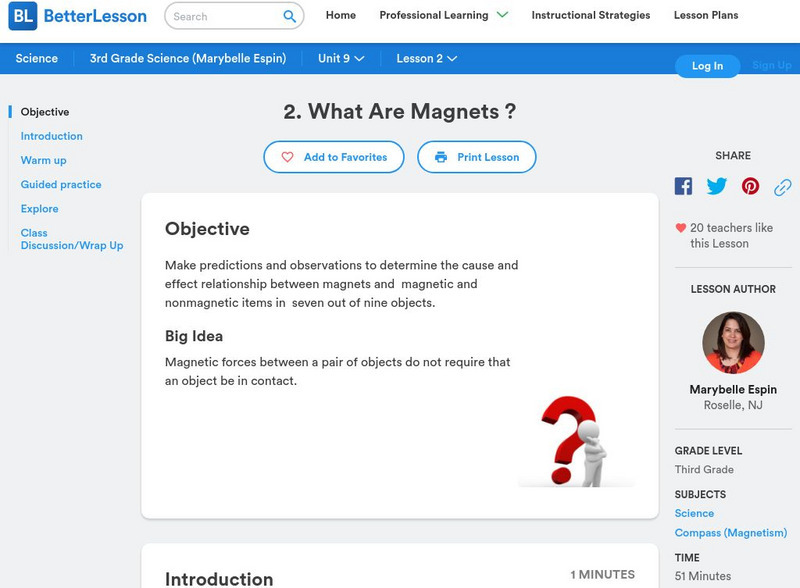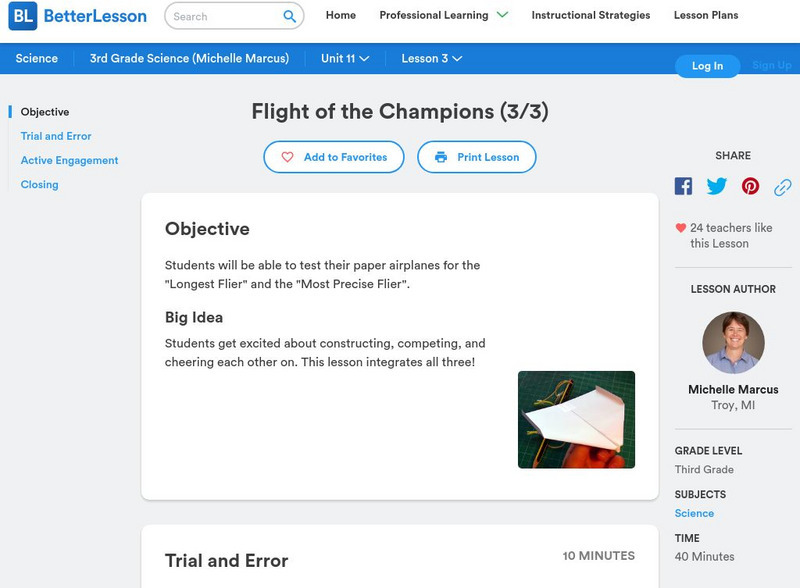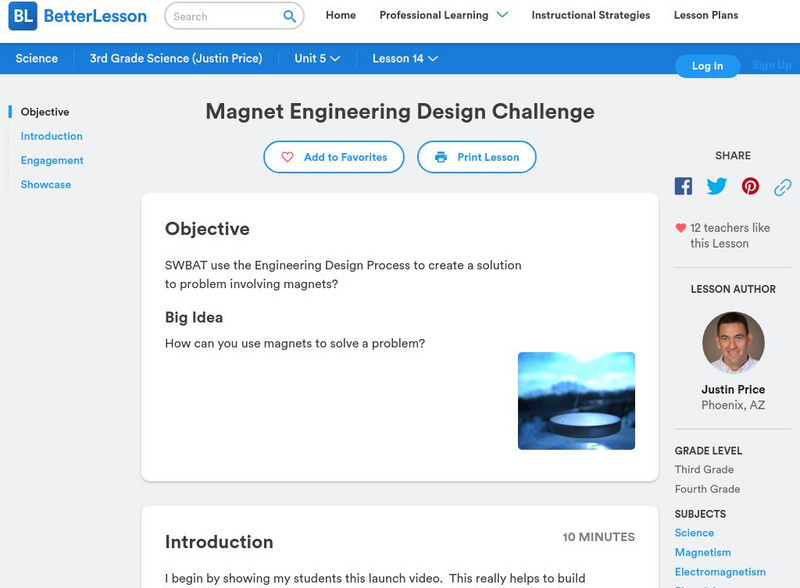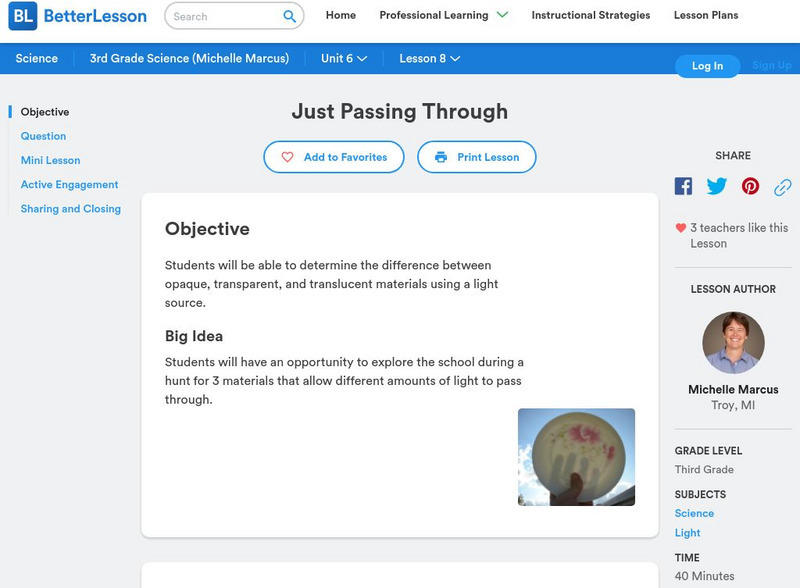Better Lesson
Better Lesson: Sl.4.3: Identify the Reasons and Evidence a Speaker Provides
Links to 17 lessons and activities that build student skills in standard SL.4.3: Identify the reasons and evidence a speaker provides to support particular points.
Better Lesson
Better Lesson: Sl.4.2: Pose an Respond to Specific Questions
Links to 38 lessons and activities that build student skills in standard SL.4.2: Pose and respond to specific questions to clarify or follow up on information and make comments that contribute to the discussion and link to the remarks of...
Better Lesson
Better Lesson: Sl.4.1c: Pose an Respond to Specific Questions
Links to 60 lessons and activities that build student skills in standard SL.4.1c: Pose and respond to specific questions to clarify or follow up on information and make comments that contribute to the discussion and link to the remarks...
Better Lesson
Better Lesson: Sl.4.1b: Follow Agreed Upon Rules for Discussion
Links to 57 lessons and activities that build student skills in standard SL.4.1b: Follow agreed upon rules for discussion and carry out assigned roles.
Better Lesson
Better Lesson: Sl.4.1a: Come to Discussions Prepared
Links to 36 lessons and activities that build student skills in standard SL.4.1a: Come to discussions prepared, having read or studied required material; explicitly draw on that preparation and other information known about the topic to...
Better Lesson
Better Lesson: L.4.6: Acquire and Use Grade Appropriate Words and Phrases
Links to 10 lessons and activities that build student skills in standard L.4.6: Acquire and use accurately grade-appropriate general academic and domain-specific words and phrases, including those that signal precise actions, emotions,...
Better Lesson
Better Lesson: L.4.5b: Recognize Meanings of Idioms, Adages, Proverbs
Links to 10 lessons and activities that build student skills in standard L.4.5b: Recognize and explain the meaning of common idioms, adages, and proverbs.
Better Lesson
Better Lesson: Learn a Word: Science Vocabulary Acquisition
In this lesson, students use multiple sources to learn the meanings of science words, collaborating to create useful resources for learning and retaining science vocabulary.
Better Lesson
Better Lesson: Assessing Theme
This is an introductory lesson on the concept of theme. Students choose two words that sum up the theme of the novel "So B. It" by Sarah Weeks. They then analyze a passage to find evidence of their choices and create a theme map. They...
Better Lesson
Better Lesson: Cornerstone: Peer Review Fishbowl
In this lesson, 6th graders are shown what an effective peer review session looks and sounds like. While observing it, students have a silent discussion online about what they notice. They then fill in a peer review goal setting worksheet.
Better Lesson
Better Lesson: How Do We Learn?
In this instructional activity, 6th graders meet in groups and discuss their learning styles. They will come up with three ways they learn best, as well as successful learning experiences they have had in the past.
Better Lesson
Better Lesson: Practicing Science Vocabulary
In this lesson, 6th graders play a compare and contrast game and Pictionary to practice their science vocabulary.
Better Lesson
Better Lesson: Compound Events Visual Displays of Sample Spaces
Seventh graders will be able to represent the sample space of compound events, and calculate the probability of events using their sample space.
Better Lesson
Better Lesson: Simulations Can You Design an Experiment?
Seventh graders will be able to design and conduct their own simulation to determine the probability of an event.
Better Lesson
Better Lesson: Partitioning Rectangles and Squares
This site provides six practice activities to learn how to partition a rectangle into rows and columns of same-size squares and count to find the total number of them.
Better Lesson
Better Lesson: Wiggly Worms Earthworm Assessment Take Me Home!
Students will identify and describe the major element of an earthworm's habitat by drawing a diagram and writing a sentence. Included in this lesson is an earthworm habitat worksheet, video of the lesson in action, a grading rubric, and...
Better Lesson
Better Lesson: Exploring Weather One, Two, Three, Forecast!
Students will use weather data they collect to predict future weather. Included in this instructional activity are a weather forecasting recording sheet and an example of a student's completed work.
Better Lesson
Better Lesson: 2. What Are Magnets ?
Make predictions and observations to determine the cause and effect relationship between magnets and magnetic and nonmagnetic items in seven out of nine objects.
Better Lesson
Better Lesson: Magnetism Exploration
Third graders will be able to identify objects that are attracted or repelled by magnetism.
Better Lesson
Better Lesson: What Caused That Change in Motion?
Third graders will observe balls changing direction and determine what made the ball's motion change. They will also use a digital resource to change the position of a digital ball.
Better Lesson
Better Lesson: Force and Motion Investigation
Conduct an investigation collaboratively on the effect of force applied on an object to produce data to serve as the basis for evidence, by using fair tests in which variables are controlled and the number of trials are considered.
Better Lesson
Better Lesson: Flight of the Champions (3/3)
Third graders get excited about constructing, competing, and cheering each other on. This instructional activity integrates all three!
Better Lesson
Better Lesson: Magnet Engineering Design Challenge
Use the engineering design process to create a solution to problem involving magnets?
Better Lesson
Better Lesson: Just Passing Through
Students will have an opportunity to explore the school during a hunt for 3 materials that allow different amounts of light to pass through. Included in this lesson are videos showing the lesson in progress, examples of students' work,...


